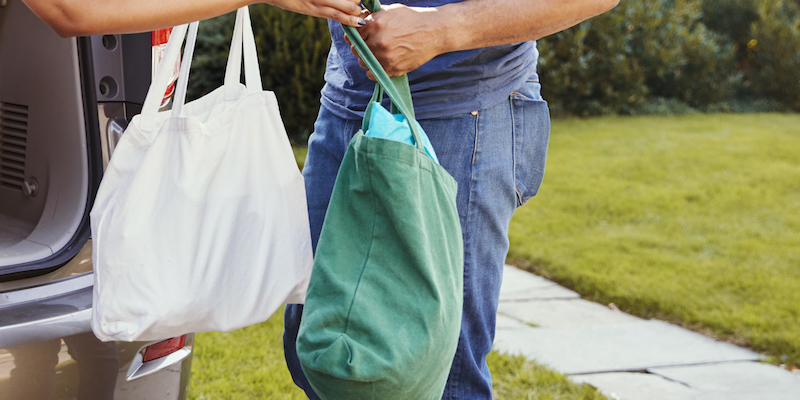- Home
- News
- 2018
- Food Storage Solutions
- How to Maintain Food Safety with Reusable Shopping Bags
How to Maintain Food Safety with Reusable Shopping Bags

Australians have adopted reusable shopping bags quickly. All states and territories are now on board with the change and the environmental positives will soon start to mount up. However, the change has forced chefs and restaurant/kitchen managers to carefully consider how they handle reusable shopping bags to ensure food safety standards are adhered to and food contamination is eliminated as a possibility.
Health Hazards
Reusable shopping bags may allow for the proliferation of bacteria unless they are handled correctly. Too often, traces of food remain in the bags which are then left in a car to become warm in the sun. This provides the conditions necessary for bacteria to multiply quickly. When new food is introduced into the bag, the bacteria quickly migrates and begins to grow on its new host. Under these circumstances, the bacteria can reach levels which are harmful to human health.
Reduce Risks
· Wash reusable bags after they are unloaded to help reduce the spread of bacteria.
Cloth bags may be put in the washing machine while plastic bags should be wiped out with warm soapy water. Both of these bag types can be air-dried while cloth bags may also be placed in the drier. When transporting meat, ensure it is in a disposable plastic bag before placing it in the reusable bag.
· Colour code shopping bags and use certain colours for certain products.
Use the same colour coding system for the bags as is used for the chopping boards in the kitchen) Only put meats in the meat bags, dairy in the dairy bags and fruit and vegetables in their own special bags. This will assist in reducing the spread of bacteria from one to the other.
· Remove food from bags as soon as possible to further help reduce the spread of bacteria.
This is especially the case with chilled and frozen food. These should be in the fridge or freezer within two hours of purchase to prevent spoilage.
· Store clean bags in a dry environment where air can circulate freely.
Placing them under the sink or in a vehicle will enhance the likelihood of bacteria multiplying. Avoid this by creating a space in the kitchen where they can be stored safely. Keep bags for meat together, bags for fruit and vegetables together and bags for dry foods together. Place reusable bags on a clean surface. This will prevent bacteria from migrating from an unclean surface to the clean bag.
· Do not use reusable bags for transporting non-food items.
In a professional kitchen, food safety is paramount so do not use these bags for other items such as clothing, personal care products, gardening or automotive products. Residue from these may compromise food safety.
Environmental Benefits
The environmental benefits of reusable bags are significant. Old plastic bags once ended up in our rivers, lakes and streams and slowly made their way to the oceans where marine life would ingest them in the belief they were jellyfish. Thankfully, this is in the past. However, their reusable replacement brings with it a need to maintain vigilance to reduce the spread of the bacteria which may be harmful to human health.





















































































